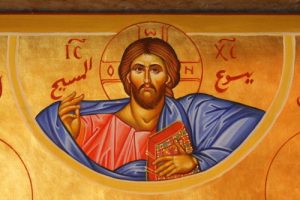The Circular Letters of St. Guido Maria Conforti

The Life of the Founder | The Legacy of the Founder | Celebrating his Legacy
St. Guido Conforti, founder of the Xaverian Missionaries more than 120 years ago, lives on in the passion for Christ and passion for humanity of Xaverian Missionaries in all continents of the world. That passion for mission comes from the charismatic power of the Holy Spirit that call the Founder to dedicate priests and brothers to the First Proclamation of the Church. We cross geographical, cultural, and religious borders to share the inimitable love of Christ for all of humanity.
One of the most inspirational ways the St. Guido Conforti guided his fledgling missionary institute dedicated to mission in China in the late 19th century and early 20th century, was through special letters that sought to inspire and unify Xaverian Missionaries everywhere. We call them his “Circular Letters.” We share them with you with the hopes you too will find inspiration. Even though they are dated, they offer a vision of faith which is timeless.
The First Circular Letter

“Work always with the same spirit of Christ. Keep Jesus before your eyes. He is the model of all called to glory. He is the particular model for the heralds of the gospel. They announce a heavenly teaching, they should witness by their lives to the sublime examples of holiness which are part of our priceless heritage. That Christ might ever be foremost in your thoughts and affection, I suggest: foster that interior spirit which provides strength, vitality, nourishment for your exterior life of continuous activity and sacrifice. You cannot preserve in such activity for long unless an interior spirit rooted in God, the source of every true joy, sustains you.”
The Second Circular Letter

“I can well understand that you experience setbacks and difficulties of every kind. At times your apostolate may appear sterile, it may produce little of the fruit, which you expected. Don’t be discouraged; the Lord measures not so much the results of you labor as the right intention with which you work. Persevere always with a simple spirit, humility, mortification, good intention, cleanliness of heart, fraternal charity and you will constitute a formidable army, for the Lord will be by your side. Like the light which dissipates darkness, you – by preaching the good news, by the example of your life…”
The Third Circular Letter

“This holy union will grow stronger day by day if Christ’s love remains the bond binding your hearts together, if the rules of our Institute, especially the evangelical counsels which you profess, remain the unchanged rule for our work. Love poverty, be satisfied with bare necessities as poor people do, don’t look for what is superfluous in dress, housing, food. Preserve and prudently guard priestly purity, avoid anything which might diminish its splendor, even in the public eye alone so as to have nothing of remorse in the secret of your heart. Above all else I recommend the spirit of submission and obedience, which is not popular today.”
The Fourth Circular Letter

“I am happy to send you the new rule of our small foreign mission society. They are the result of long study and experience. I wrote them in view of how they should be when our Institute will have attained that full development to which all commit ourselves for the glory of God and the coming of the kingdom on this earth. While composing this rule I had three things in mind especially: to convey the sublime nature of vocation and the apostolic life; to guarantee unity of spirit and government to our society; to describe what is necessary for the formation and preservation of that spirit.
The Fifth Circular Letter

“Every one of us should be intimately persuaded that the vocation to which we have been called could not be greater or more noble; it draws us close to Christ, the author and consummation of our faith, and to the Apostles who, leaving everything behind, pledged themselves entirely and without reserve to following Christ. They are the best models for our life. The Lord could not have been more benevolent towards us! The apostolic life, combined with the profession of the religious vows, is in itself the most perfect life possible according to the Gospel. Through the profession of the religious vows we die to all earthly things in order to live a life hidden in God with Jesus Christ, thus fulfilling what the Apostle Paul wrote to the early believers”: “You have died, your life is hidden now with Christ in God” (Col 3: 3)
The Sixth Circular Letter

“…I cannot describe with what joy I recently received letters from Chengchow (China) assuring me that the hostilities, which had prevailed for so long in that region had terminated, and that I could attempt the long journey without undue preoccupation. I cannot, I should not delay my coming any longer. At the end of the month I will set out for your distant shores. I will advise you as to the date of my departure from Parma (Archdiocese in Italy). The purpose of my visit is not to see new regions or new customs. I want to speak with you personally, bring you my blessing, congratulate you for the successes obtained, encourage you to continue the work, which has begun so well.
The Seventh Circular Letter

“Looking back on the fine days we spent together, I must congratulate you on the great work which you have accomplished. I wish to thank you, along with your Vicar Apostolic, for all of the kind attentions which you had for me, they remain a treasured memory for the rest of my life. I cannot forget all of the various functions I attended with your Christians; I cannot help but admire their deep-rooted piety and their clear profession of faith, which must be doubly difficult at this time of internal struggle in China. Please thank them for me and assure them that I pray for them every day that the Lord may strengthen them in their desire to life a truly Christian life, and that he may abundantly reward the labors of those who sacrifice themselves for them in the apostolic ministry.”
The Eighth Circular Letter

“The perseverance and success of a Religious Society depends on the spirit of discipline and family love which is present. I pray the Lord that we never need relax the observance of our constitutions, nor water down that spirit of mutual charity which binds member to member, superiors and subjects. It is by such agreement that small institutions find strength and growth, where disharmony exists even the larger and powerful communities succeed not. Let us ever remember that our sanctification flows from the faithful and constant observance of the constitutions, in no better way can we fulfill the will of God which has called us by love to labor for the glory of the apostolate. On the last day, we will not be asked if we accomplished great deeds, or been acclaimed by men, rather we will be asked if we followed his will in the state and condition to which we were called.”